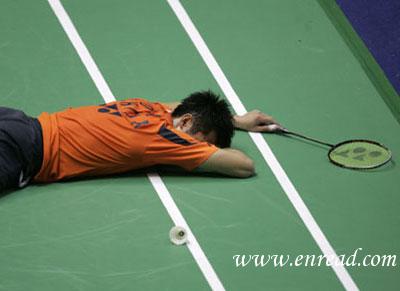深圳经济特区内部审计办法
|
颁布日期:19950415 实施日期:19950415 颁布单位:深圳市政府 Rules of Shenzhen Special Economic Zone on Internal Audit (Adopted at the 97th Executive Committee of the Shenzhen Municipal People‘s Government on December 31, 1994. Promulgated by Decree No.45 of Shenzhen Municipal People’s Government on April 15, 1995) Chapter Ⅰ General Provisions Article 1 In order to set up and perfect the system of internal audit, strengthen the administration and supervision on internal audit units, improve operation and management, and increase economic benefit, these rules are formulated in accordance with the Audit Law of the People‘s Republic of China, combining with the actual circumstances of Shenzhen Special Economic Zone (hereinafter referred to as the special zone)。 Article 2 “Internal audit” in these rules refers to a kind of economic supervision, which is conducted by government department, state-owned financial institution, enterprise or institution (hereinafter referred to as the internal audit units) to examine, verify and evaluate the authenticity, legality and beneficial results of its own economic activities, or those of its subordinate units according to relevant provisions of laws, regulations and rules. Article 3 The Audit Department of the People‘s Government of Shenzhen Municipality (hereinafter referred to as the municipal audit department) shall conduct professional direction and supervision on internal audit work. ChapterⅡ Internal Audit Institutions and Auditors Article 4 According to the needs of internal management, the following units may establish independent internal audit institutions: (1) government departments; (2) state-owned financial institutions; (3) joint-stock enterprises with the state-owned assets; (4) state-owned group (head) companies and the companies directly subordinate to them with more than 5 independent accounting units; (5) state-owned institutions, whose financial revenue and expenditure are relatively large; (6) state-owned enterprises, whose financial revenue and expenditure are large; (7) other units that need to establish internal audit institutions. The unit with relatively little internal audit business may appoint full-time internal auditors. The government-sponsored administrative institution, which wants to set up an internal audit institution or appoint full-time internal auditors, shall report to the competent department for establishment of organizations at the same level for examination and approval. Article 5 The internal audit institutions and full-time internal auditors shall accept the direct leadership of the persons in charge of their units, independently exercise the functions and powers of internal audit according to law, be responsible and report on their work to the persons in charge of their units. The superior internal audit institution shall direct its subordinate unit in internal audit work. Article 6 The internal audit institution shall employ professional persons suitable to its work. The person in charge of the internal audit institution shall have a middle or higher technical title of relevant major, such as auditing, accounting, operation and management. Other working staff of the internal audit institution shall possess the professional knowledge and ability suitable to the audit work they engage in. Article 7 The appointment or dismissal of the person in charge of internal audit institution shall be solicited opinions from its superior internal audit institution and be reported to the municipal audit department for record. As to the internal audit institution of joint-stock enterprise, group (head) company with a board of directors or subordinate company,its person in charge shall be appointed or dismissed by the board of directors. As to the internal audit institution of group (head) company without a board of directors, directly subordinate company or other unit, its person in charge shall be appointed or dismissed by the main leading official of the unit. The post of the person in charge of internal audit institution shall be kept relatively stable. The person in charge of internal audit institution shall not be removed or replaced at random. Article 8 The internal auditors shall audit according to law, be devoted to their duties, be objective and just, keep secrets, and shall not abuse their powers or play irregularities for favoritism. Article 9 The internal auditors shall be protected by law in performing their functions and powers according to law. No unit or individual may retaliate against them. Chapter Ⅲ Supervision Issues and Powers of Internal Audit Article 10 The internal audit institution shall carry out supervision through auditing to the following issues of this unit and subordinate unit: (1) the implementation of relevant financial and economic laws, regulations, rules and systems; (2) the implementation of operation guidelines, policies, rules and systems laid down by its owning unit; (3) the authenticity and correctness of accounting materials and economic information; (4) the safety and integrity of state-owned assets, rights and interests; (5) the laying down and implementation of various operation schemes, plans and budgets; (6) the economic activities involving financial receipts and expenditures, and economic benefits; (7) the conclusion and fulfillment of economic contracts; (8) the establishment, improvement and implementation of internal financial system; (9) the economic liabilities of contracted management or business management under lease, and of the person in charge leaving his post; (10) the use and beneficial results of the capitals and properties invested in the joint venture, cooperative venture or cooperative project, and the conditions of using state-owned assets to acquire mortgage loan or providing warranty to other unit; (11) the activities of making important decisions on operation; (12) other audit matters that are handed over by this unit‘s main leading official or the superior internal audit institution, or stipulated by laws, regulations or rules. Article 11 The internal audit institution has the following main functions and powers: (1) to examine the accounting statement, account book, credence, capital and other property, and look up in relevant documents and materials; (2) to investigate relevant matters in audit and demand for evidentiary material; (3) to make temporary decision to stop the activity violating financial and economic laws or disciplines, or the activity causing loss or waste, after getting approval from the unit‘s person in charge; (4) to put forward suggestions of investigating liability to the person, who seriously violates the financial and economic laws or disciplines or causes great loss or waste; (5) to take necessary temporary measures to the person, who obstructs or disrupts the audit work, or refuses to provide relevant materials, after getting approval from this unit‘s main leading official, and put forward suggestions of investigating liability to relevant person; (6) to put forward suggestions of improving management, increasing beneficial results, correcting or dealing with the activity violating financial and economic laws or disciplines, and inspect the implementation of audit conclusion; (7) to report important matters in audit work to the superior internal audit institution and audit department. Article 12 The internal audit unit may authorize the internal audit institution to exercise relevant economic powers within the scope of its administrative authority. Chapter ⅣWorking Procedures of Internal Audit Article 13 The internal audit institution shall lay down the working plan of internal audit according to the arrangements of superior internal audit institution and the municipal audit department in combination with the specific circumstances of this unit, and implement the working plan after it is submitted to and approved by the person in charge of this unit. Article 14 The internal audit institution shall serve an audit notice to the audited unit before conducting audit. The notice shall include the following items: (1) the scope, content, time and way of audit; (2) the name list of the leader and other members of audit team; (3) the requirements to the audited unit of cooperating in audit work. Article 15 The internal auditors shall examining, collecting evidence, investigating and analyzing according to the audit items and requirements of audit work, and may put forward improvement opinions concerning the found problems in audit to relevant unit, department or person at any time. Article 16 After the audit is finished, the internal audit institution shall issue an audit report to the main leading official of this unit. The audit report shall include the following contents: (1) the scope, content, time, way and relevant conditions of audit; (2) the facts relevant to the audit matters; (3) relevant laws, regulations, rules or policies, according to which the audit is conducted; (4) the audit conclusions, opinions and suggestions of settlement. Article 17 After the audit is finished, the internal audit institution shall draw up a written audit decision if it thinks necessary. When the main leading official of this unit approves the audit decision, it shall be sent in the name of the unit to the audited unit for implementation. The audited unit shall implement the approved audit decision. If the audited unit does not agree with the audit decision, it may complain to the main leading official of the unit, to which the internal audit institution belongs, within 10 days from receiving the audit decision. The main leading official shall deal with the complaint in time. The audit decision shall still be implemented during the complaining period. Article 18 The internal audit institution shall set up internal audit archives, and keep them carefully and skillfully according to relevant regulations. Article 19 In case that the internal audit institution undertakes the audit matters assigned by the municipal audit department or superior internal audit institution, the audit report shall be submitted to the assigning unit for examination and approval. The assigning unit shall make the audit conclusion or decision. Chapter ⅤDirection and Supervision of the Audit Department to Internal Audit Article 20 The municipal audit department shall direct and supervise the internal audit work of internal audit unit according to relevant provisions of laws, regulations, rules and these rules. The municipal audit department shall lay down working procedures and standards of internal audit, supervise and urge the internal audit institution to work strictly according to the working procedures and standards of internal audit, and promote the standardization and institutionalization of internal audit. Article 21 The municipal audit department shall set up the system of on-the-job training to internal auditors according to the needs of internal audit work, carry out on-the-job training and assessment to internal auditors regularly or irregularly, and improve the professional qualities of internal auditors. Article 22 The municipal audit department may organize assessment, appraisal through comparison to the internal audit work, encourage and reward the advanced unit of internal audit to promote the development of internal audit work. Chapter Ⅵ Encouragements and Punishments Article 23 The internal audit institution, internal auditor, who gains great achievement in work, shall be encouraged and rewarded by the municipal audit department, internal audit unit or superior internal audit unit. Article 24 The internal audit institution, which plays irregularities for favoritism or plays tricks in internal audit work, shall be ordered to make correction within a prescribed time limit by the internal audit unit or superior internal audit institution. The person directly liable of the internal audit institution shall be investigated for administrative responsibility. If his act constitutes a crime, he shall be investigated for criminal responsibility by the judicial department according to law. The internal audit organ, which causes economic losses to the audited unit because of providing false audit conclusion, shall bear the liability of compensation, and may be imposed a fine of 10,000 to 50,000 yuan by the supervisory department. Chapter Ⅶ Supplementary Provisions Article 25 These rules shall be applicable to the internal audit of collectively-owned enterprises referentially. Article 26 These rules shall go into effect as of the date of promulgation. The Opinions on Further Strengthening the Internal Audit Work, which is issued by the Audit Bureau of Shenzhen Municipality, and transmitted after approval by the People‘s Government of Shenzhen Municipality on October 22, 1987, shall be annulled therefrom. |





![商务细节之个人创业[英语漫画]](/uploads/hangye/2023/12/07/08190218550.gif)
![商务细节之玩转公关公司[英语漫画]](/uploads/hangye/2023/12/07/08190335360.gif)

